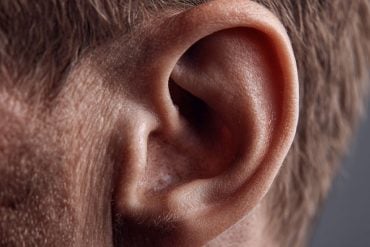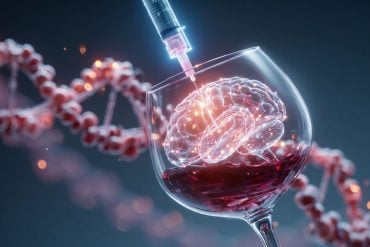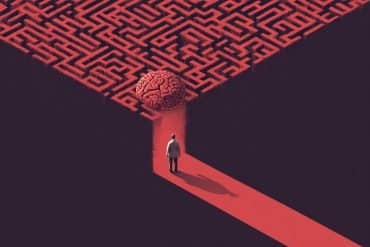Summary: Researchers studying people with epilepsy have discovered that nerve cells in the medial temporal lobe coordinate their firing with slow brain waves to encode and retrieve memories. This synchronization, known as theta-phase locking, occurs at one to ten cycles per second and is active during both learning and recall.
The strength of this rhythm during memory formation did not predict whether the information was remembered later, suggesting it is a general feature of memory rather than a marker of recall success. The work deepens our understanding of how the brain’s internal rhythms organize memory processing and could inform future strategies for tackling memory disorders.
Key Facts:
- Theta-Phase Locking: Neurons align their firing to the phase of slow brain waves during both learning and recall.
- Not a Recall Predictor: Strength of theta-phase locking during learning did not guarantee later memory success.
- Therapeutic Potential: Findings could guide approaches for understanding and treating memory disorders.
Source: University of Bonn
A research team from the University Hospital Bonn (UKB), the University of Bonn, and the Medical Center – University of Freiburg has gained new insights into the brain processes involved in encoding and retrieving new memory content.
The study is based on measurements of individual nerve cells in people with epilepsy and shows how they follow an internal rhythm.
The work has now been published in the journal Nature Communications.

“Similar to members of an orchestra who follow a common beat, the activity of nerve cells appears to be linked to electrical oscillations in the brain, occurring one to ten times per second.
“The cells prefer to fire at specific times within these brain waves, a phenomenon known as theta-phase locking,” says first author and postdoctoral researcher at the University of Bonn, Dr. Tim Guth, who recently joined the Cognitive and Translational Neuroscience group at the UKB from the Medical Center – University of Freiburg.
The research team led by Tim Guth and Lukas Kunz found that the interaction between nerve cells and brain waves is active in both the learning and remembering of new information – specifically in the medial temporal lobe, a central area for human memory.
However, in the study on spatial memory, the strength of theta-phase locking of nerve cells during memory formation was independent of whether the test subjects were later able to correctly recall the memory content.
“This suggests that theta-phase locking is a general phenomenon of the human memory system, but does not alone determine successful recall,” says corresponding author Prof. Dr. Lukas Kunz, head of the Cognitive and Translational Neuroscience working group at the Clinic for Epileptology at the UKB and member of the Transdisciplinary Research Area (TRA) “Life & Health” at the University of Bonn.
Interaction of nerve cells and electrical signals
While most nerve cells always fired at the same oscillation time, some nerve cells interestingly changed their preferred timing between learning and remembering.
“This supports the theory that our brain can separate learning and retrieval processes within a brain wave, similar to members of an orchestra who start playing at different times in a piece of music,” says Guth.
The study provides new insights into how nerve cells and electrical signals in the brain interact while new memories are formed.
Prof. Kunz concludes: “A better understanding of these processes could help us in the long term to better understand memory disorders and treat them more effectively. “
The research team was able to observe the interaction between nerve cells and brain waves during the memory process in the study by exploiting a special feature of epilepsy therapy. Patients with particularly difficult-to-treat epilepsy have electrodes implanted in their brains for diagnostic purposes.
The aim is to determine the exact origin of the epileptic seizures in order to achieve better surgical results. However, these implanted electrodes can also be used to record human brain activity at the level of individual cells. The researchers used measurements taken at the Medical Center – University of Freiburg and would like to thank all patients who participated in this study.
Participating institutions and funding:
In addition to the University Hospital Bonn (UKB), the University of Bonn, and the Medical Center – University of Freiburg, the Columbia University (New York, USA) was also involved.
The research was funded by the Federal Ministry of Research, Technology and Space (BMFTR), the US National Institutes of Health (NIH), the US National Science Foundation (NSF), the German Research Foundation (DFG), and the return program of the Ministry of Culture and Science of the State of North Rhine-Westphalia.
About this neuroscience and memory research news
Author: Inka Väth
Source: University of Bonn
Contact: Inka Väth – University of Bonn
Image: The image is credited to Neuroscience News
Original Research: Open access.
“Theta-phase locking of single neurons during human spatial memory” by Tim Guth et al. Nature Communications
Abstract
Theta-phase locking of single neurons during human spatial memory
Memory processes may rely on complex interactions between single-neuron activity and local field potentials.
To better understand such spike–field relationships in humans, we examined human theta-phase locking—neuronal firing at similar theta phases over time—using single-neuron recordings in epilepsy patients performing a spatial memory task.
Applying frequency-adaptive theta-phase estimation in a broad 1–10 Hz frequency range, we found that theta-phase locking was widespread in the human medial temporal lobe during memory encoding and retrieval.
Time-resolved spectral parameterization and cycle-by-cycle analysis demonstrated stronger theta-phase locking during steep aperiodic slopes and prominent theta oscillations.
Phase-locking strength was similar across successful and unsuccessful memory trials, with most neurons spiking at similar theta phases during encoding and retrieval.
Some neurons shifted their preferred phase, supporting theories that encoding and retrieval are separated within the theta cycle.
These results show how local field potential properties and memory states influence human theta-phase locking.






